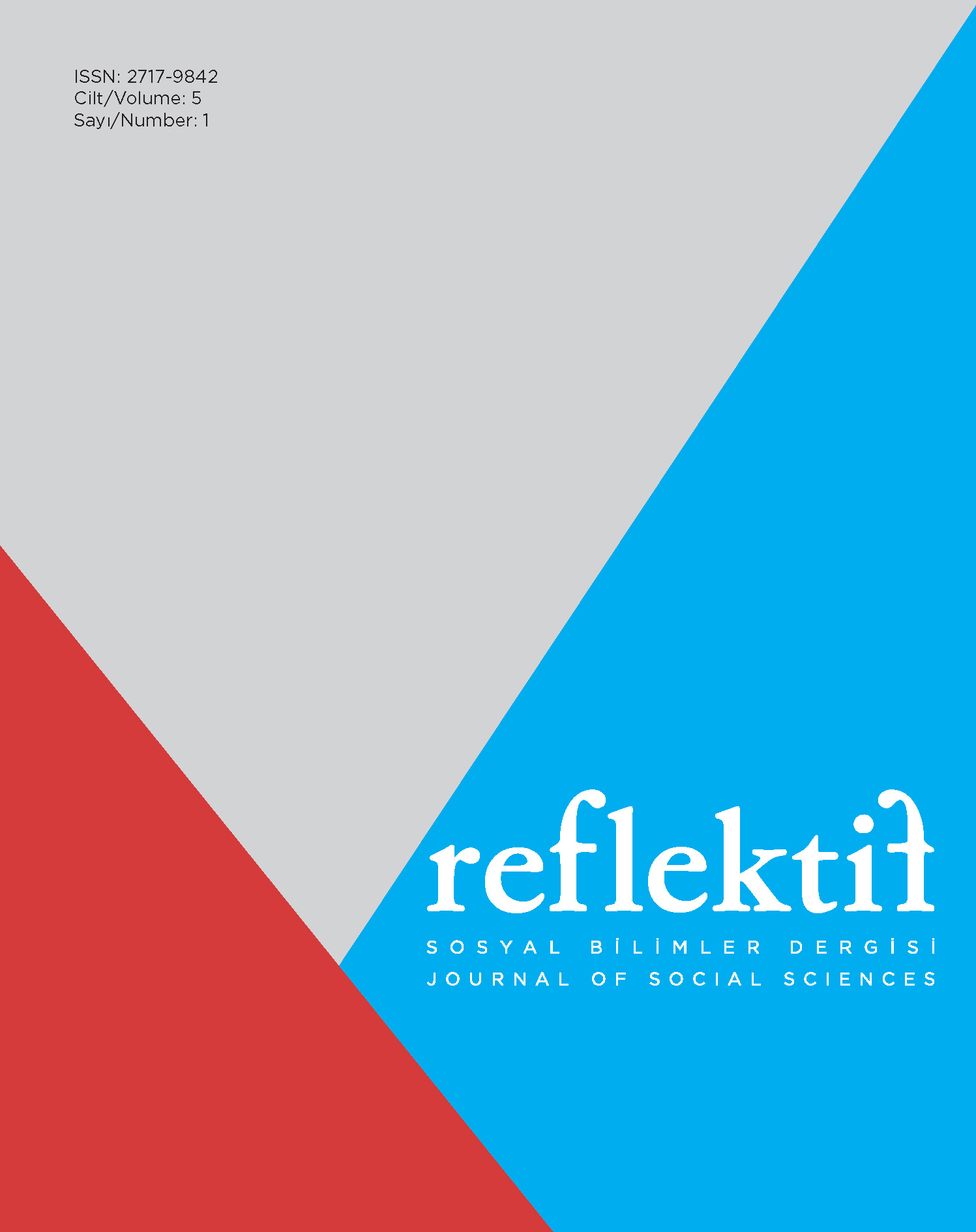Kakafonik Seçim Kampanyaları, Önleyici Bilgi Doğrulama ve 2019 Nijerya Genel Seçimleri’nde Dezenformasyon
DOI:
https://doi.org/10.47613/reflektif.2024.155Anahtar Kelimeler:
sahte haber- seçimler- dezenformasyon- seçim kampanyaları- propaganda- dijital medya kuruluşlarıÖz
2016 yılında Amerika Birleşik Devletleri’nde gerçekleşen başkanlık seçimleri, sosyal medyada etkili olması açısından bütün dünyanın ilgisini çekti ve bu model iktidarı kazanma yönünden kestirme bir yol olarak gören aktörler tarafından diğer ülkelerde de kopyalanıyor. Bu modelin 2019 genel seçimlerine yaklaşan süreçte Nijerya’da da görüldüğünü söylemek mümkün; seçmenleri etkilemek amacıyla yalan ve dezenformasyon haber içeriği oluşturuldu. Birçok siyasi aktör ve destekleri için, uydurma siyasi içeriklerin üretilmesi ve yayılması ciddi bir süreç ve muhalefetin imajını itibarsızlaştırmak, kendi destek tabanlarını korumak ve aynı zamanda ikna edilebilir belirli grupları kazanmak için güçlü bir stratejidir. Bu çalışma, hükümetin, içerik sağlayıcıların, sivil toplumun ve çevrimiçi sosyal platformların dezenformasyona yönelik nasıl bir direnç oluşturabileceğin ve nasıl zararlı bilginin yayılmasının önlenebileceğini irdelemektedir. Çalışma bazı temel soruları ortaya koymaktadır: Bu paydaşlar müdahaleleriyle seçim sürecine ve medyaya ilişkin güvenin azalması durumunu azaltabilir mi? Dijital alan aracılığıyla oluşan bilgi akışı siyasi açıdan daha bilgili vatandaşlar yaratılmasında etkili olabilir mi? Eğer sahte haberler ülkenin seçim bütünlüğünü olumsuz yönde etkilemekteyse vatandaşlar ilgili süreçten sonra oluşan hükümetten demokratik bir şekilde hesap verebilirlik beklentisine sahip olabilir mi? Dolayısıyla, bu makale, 2019 genel seçimlerini çevreleyen sosyo-politik manevraları inceleyerek Nijerya’nın siber gerçeklik kaygılarının anlaşılmasını zenginleştirmeyi amaçlamaktadır. Bununla beraber, seçim döneminde insanların yanlış bilgileri almasını ve bu yanlış bilgilere tepki vermesini şekillendiren faktörler konusunda fikir vermektedir.
İndir
Yayınlanmış
Sayı
Bölüm
Lisans
Telif Hakkı (c) 2024 Mike Omilusi

Bu çalışma Creative Commons Attribution-ShareAlike 4.0 International License ile lisanslanmıştır.
REFLEKTİF Sosyal Bilimler Dergisi'ne yayımlanması için değerlendirilmek üzere gönderilen makaleler, daha önce herhangi bir ortamda yayınlanmamış veya herhangi bir yayın ortamına yayınlanmak üzere gönderilmemiş olmalıdır.
Makalelerin yayıma kabul edilmesi durumunda ticari amaç da dahil olmak üzere ve aynı lisansı kullanılmak şartıyla, çalışmanın başka çalışmalarla birleştirilmesi, çalışmanın üzerine yeni bir çalışma yapılması ya da farklı düzenlemeler yapılmasına izin verilir.
REFLEKTİF Sosyal Bilimler Dergisi'nde yayınlanan çalışmaların telif hakları yazarına aittir. Yazarlar çalışmalarını çoğaltmak ve yaymakta özgürdür.








